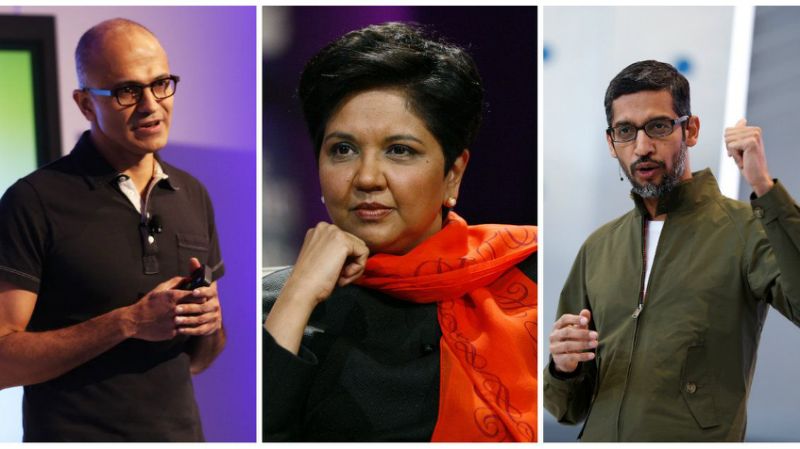The India effect of CSR legislation and enterprise management
2019-05-09China Sustainability TribuneGoldenBee0

Interviewee|Dr. Divya Kirti Gupta, Associate Professor at GITAM Hyderabad Business School
China Sustainability Tribune interviewed Dr. Divya Kirti Gupta about CSR development and management education in India.
Dr. Divya Kirti Gupta is working as Associate Professor at GITAM Hyderabad Business School, GITAM (Deemed to be University), Hyderabad, Telangana State, India. She is the ambassador of the Academic & Research Group, ISO26000 Stakeholders Global Network (ISO 26000 SGN) and elected representative of developing countries for Stakeholder Advisory Group, ISO26000. She is also the co-drafter of ISO 26000, the International Guidance Standard on Social Responsibility of Organizations. Her research interests include CSR, Organization Development, e-Democracy, and Management Thought.

The leading effect of Indian CSR legislation
China Sustainability Tribune: It is known that India has attached great importance to CSR. In 2013, India’s new Companies Act came into force. Could you please introduce this policy for us? What is the background of this policy?
Dr. Gupta: India has shown its leadership in CSR legislation. Specifically, the Section 135 of Companies Act (2013) mentions that every company with a net worth of rupees five hundred or more (100 million $ or more), or a turnover of rupees one thousand crore or more (200 million $ or more), or a net profit of rupees five crore or more (1 million $ or more) during any financial year has to constitute a CSR committee of the board consisting of three or more directors, out of which at least one director should be an independent director. Board of such companies must ensure that the company spends, in every financial year, at least 2% of the average net profits of the company in the social welfare activities.
By making CSR mandatory, Indian government has institutionalized CSR in the organizational set up in India.The purpose of including CSR in the Act is to ensure that organizations share responsibility and contribute towards sustainable growth. Progressive thinking at government level and structuring of CSR, with a direction for the organizations, are the major drivers for this legislation. The areas identified for CSR initiatives are in line with the national areas of welfare and development.
China Sustainability Tribune: What impact has this law had on CSR in the first five years since its implementation?
Dr. Gupta: Today in India, there is active board-level discussion on CSR in the organizations. CSR policy is being formulated and spelt out very clearly, CSR road-maps are being designed by the companies around the focus areas, and there is an increase in employee participation in companies’ CSR activities. In the last five years, companies have contributed towards education, livelihood, rural development, environment, animal welfare, conservation of resources, gender equality, women empowerment, old-age homes, promotion of sports, heritage art and culture, slum area development, technology incubators, and Government initiatives of Swachh-Bharat’, ‘Clean Ganga’, etc.
According to ‘CRISIL CSR Yearbook 2019’, brought out by CRISIL Foundation (one of the six non-profit organizations in India and it is the only CSR pilot NGO designated by the Reserve Bank of India), the cumulative spending on CSR topped Rs.500 billion in last fiscal, including Rs.340 billion by listed companies and nearly Rs.190 billion by the unlisted ones.

(The cover of CRISIL CSR Yearbook 2019)
Tri-element Convergence breaks through difficulties
China Sustainability Tribune: CSR behavior (in addition to adhering to the most basic corporate bottom line) has always been considered voluntary and is based on a company’s own situation and related strategies. However, CSR behavior is enforced by the law which requires that “any large enterprise that fails to meet the minimum standards should explain its failure in its annual report. Otherwise, the company will be fined.” Some people think it will backfire and make enterprises lose the initiative to fulfill their social responsibilities. What is your opinion?
Dr. Gupta: In India, companies have been focusing on CSR for quite some time now. GRI and SDGs have been quite popular in India. This is still continuing. However, with the Companies Act (2013), a new way has got added, which provides direction for the organizations and enables CSR engagement of more organizations in India. ‘Schedule VII’ of the Act clearly mentions the focus areas that may be considered by the organizations for their CSR initiatives and interventions.
This doesn’t mean that the organizations are being told to do and act upon a scheme, or their freedom of choice is being curtailed, but in fact it is leading to a convergence, which I call ‘Tri-element Convergence’. The three elements in this are: (a) The needs of the society; (b) The vision of the corporates in terms of their social responsibility towards society; and (c) Government and NGOs’ efforts for the sustained development of society.
I agree that there might be shortcomings in this approach. Your concern on making CSR mandatory is genuine. At times, there are coordination issues in the ‘Tri-element Convergence’. It impinges upon the implementation, execution and transparency.
Nevertheless, people are closely observing the system. There is a dynamic process of feedback and assimilation, which is helping government, organizations and people in fine-tuning their convergence. It is also encouraging them to address the new dimensions and challenges in CSR. Capacity building programmes are being organized by different agencies for those who are designing and implementing CSR policies in the organizations. Most importantly, National Standards are being developed around the CSR requirements of the Companies Act (2013) for certification.
Hence the legislation not only attempts to provide encouragement and direction for the ideas and efforts in CSR in India, but it also provides scope for the companies to improve their CSR footprint. Therefore, there is a continuous review and exchange of views in the system, there is sufficient space for course correction.

China Sustainability Tribune: It is learnt that India welcomed the adoption of the 2030 Agenda for Sustainable Development at the UN General Assembly in 2015. Does the Tri-element Convergence make contribution to the SDGs? How is the promotion of the SDGs in India? What is the attitude of Indian enterprises towards the SDGs?
Dr. Gupta: India was the signatory of the SDGs in 2015 and the targets map well with India’s own goals on poverty, hunger and development. With SDGs, India is carrying forward its journey by promoting ‘Tri-element Convergence’ concept, and it is conceived as the way for SDGs. Niti Ayog, the Government of India’s think-tank organization, is playing a key role of mapping SDGs with the schemes of various ministries and departments. Such mapping is being done at the Central and State levels. There are workshops and conferences on SDGs. The companies are also drawing interconnectedness between SDGs and the CSR initiatives. In fact, companies are also trying to connect GRI reporting and ISO 26000. Encouragement from the Government is playing a major role and all efforts are being made to address the issues of grass-root levels through SDGs and CSR.
The world-renowned "Indian Management"
China Sustainability Tribune: Statistics show that there are 75 foreign CEOs in Fortune Global 500 companies in the United States, and 10 of them are of Indian origins. Big international companies, such as Pepsi, MOTOROLA, Unilever, etc., all have Indian CEOs, who all have management education background. India attaches great importance to management education, and has formed the unique “India Management”. Why is India’s management capability leading the world? Is CSR a factor?
Dr. Gupta: I’m very proud that people of Indian origin are in leading positions. Actually, CSR is more deeply ingrained in the psyche of Indians. India has a long and rich history of having business as an integral part of the society. Over centuries, businesses and businessmen have not only focused on business activities, but have contributed to the welfare and well-being of people at large. In a way, this is part of holistic-thinking of Indian business. One example is the concept of ‘Lok-Samaghra’. It is an Indian concept which means, ‘having regard to public benefit, you must perform these actions’. This concept has been one of the guiding principles of Indian businessmen and organization leaders.
Over last 30 years, ‘Indian Management’ has emerged as an area in management education. It draws management ideas and concepts from the Indian ethos, Indian thoughts and Indian business practices. Concrete contributions in terms of concepts, models and frameworks have been made by Prof. S. K. Chakraborty, Prof. Subhash Sharma and Dr. M. B. Atreya, who are considered as pioneers for their contribution in ‘Indian Management’. Through their work they have attempted to define ‘Indian Management’, and have identified its unique attributes and have given alternate perspective to management and management education.
Now several academicians and research scholars are taking the work further through their doctoral thesis and dissertation. This is also reflected in the subtle influence of Indian thinking in the works of Prof. Kalburgi Srinivas, Prof. Sameer R. Chatterjee and Prof. Raj Sisodia, who are well known academicians of Indian origin.

(From left to right: Satya Nadella, Indra-Nooyi and Sundar-Pichai, all are famous business executives from India)
Future-oriented Indian management teaching
China Sustainability Tribune: For management education, most people focus on functional areas and the skills to improve job performance, but ignore the integration of CSR. You have advocated incorporating CSR into management curriculum. How will this affect the cultivation of management students?
Dr. Gupta: Currently, organizations are experiencing the impact of cultural, environmental and societal changes on their bottom-line. Hence, it makes a lot of sense to integrate CSR in the management courses.
As societies are becoming more materialistic and profit-oriented, the CSR education helps students to become more compassionate. They learn to integrate the outer world with their organizational world. I call this as a way to create “Corporate-Social Citizens”, the people who have the capacity to see organizations as social entities, and have the ability to provide Holistic Corporate Leadership (HCL) to the organizations.
China Sustainability Tribune: How is the popularity and development of CSR teaching in India? What teaching experience do you have in this field?
Dr. Gupta: My journey in CSR research started in 2000, when I was with an NGO and worked with one of the tribes of western India in the State of Rajasthan. At that time, I also wanted to start my PhD study and was exploring the research topic. During my interactions with the tribal people, I found huge gap in the priorities and objectives of the government organizations, industry and the tribes. They were different worlds! It seemed as if the industry thrived on local resources with no formal connection with people. Elimination of this gap seemed impossible with parties having conflict of interests at most of the times. It was then this idea struck me, that it is not just the NGOs or government schemes, but the industry, which has to take initiatives to bridge this gap.
Thus, in 2002 I took up CSR as the topic of my doctoral research focusing on organizations of public and private sectors in India. Later in 2007, I became member of National Standards’ body and also the drafting committee member of ISO 26000 as the elected representative of developing countries.
I have integrated CSR into my management courses in the last 10 years. In my experience, management education everywhere has a role to play in orienting future managers towards the idea of social responsibility of organizations. Inclusion of CSR in the core management programmes increases students’ awareness of social issues. It acts as a medium of communication on the issues that take the class-room discussions beyond the narrow confines of organizational profit and advantage.
I use story-writing method on themes related to Organization Behaviour and CSR, as part of “creative-writing” projects and self-awareness exercises. CEO interviews and Live-projects are done by students on some of the innovative ideas taught in the class. Through these, students get a chance to ponder over performance of organizations from the point of view of social responsiveness, triple bottom-line, CSR and SDGs. Students attempt to understand the “purpose of an organization”. They discuss organization culture elements that support and nurture CSR in work place and how all these become the foundation blocks of policy-making decisions in organizations.

China Sustainability Tribune: Do you have any additional comments or ideas?
Dr. Gupta: A decade ago, I designed a new course on “Social Responsibility of Organizations” for the management students, when it was still not part of regular curriculum in our country, and I also integrated CSR into existing courses on Leadership, Change Management, Conflict Management and HR Policy.
However, year 2014 brought tremendous change. The inclusion of CSR in the Companies Act (2013) created lots of discourse around CSR in the country and has resulted in an organized work in this direction by the companies. Both these things have impacted the classroom interaction on CSR in India. It is now integrated in management courses. Hence well informed and fully conversant managers are able to understand the company’s CSR commitments and are contributing effectively to it.
Source: China Sustainability Tribune
Note: All images are from the Internet.
Best Practices
- The 100-year brand — Air Liquide also has a sense of juvenile
- Beijing Public Transportation Corporation: Developing green transportation to build a harmonious and livable capital
- CGN: Building a modern factory in barren deserts and developing a new win-win cooperation model along “Belt and Road”
Upcoming Event

All the materials on the site “Source: XXX (not from this site)” have been reprinted from other media. They do not imply the agreement by the site.
All the materials with “Source: CSR-China Website” are the copyright of CSR-China Website. None of them may be used in any form or by any means without permission from CSR-China Website.
GoldenBee Official WeChat
Copyright © Csr-china.net All Right Reserved.
京ICP备19010813号










